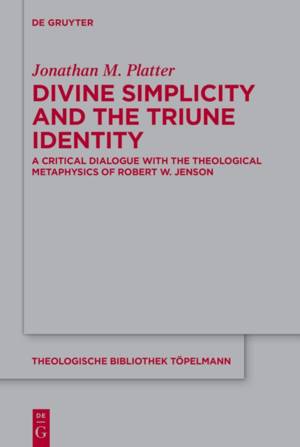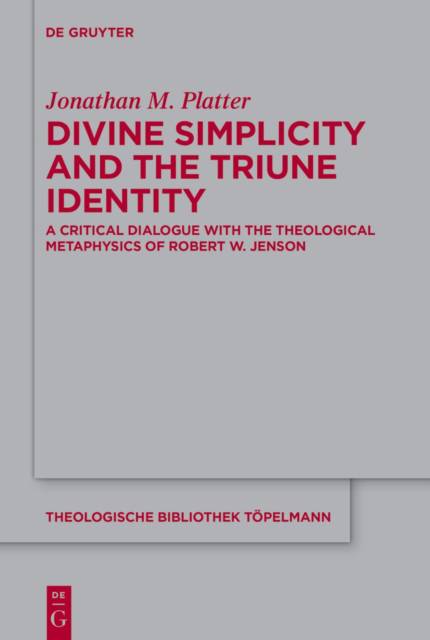
Bedankt voor het vertrouwen het afgelopen jaar! Om jou te bedanken bieden we GRATIS verzending (in België) aan op alles gedurende de hele maand januari.
- Afhalen na 1 uur in een winkel met voorraad
- In januari gratis thuislevering in België
- Ruim aanbod met 7 miljoen producten
Bedankt voor het vertrouwen het afgelopen jaar! Om jou te bedanken bieden we GRATIS verzending (in België) aan op alles gedurende de hele maand januari.
- Afhalen na 1 uur in een winkel met voorraad
- In januari gratis thuislevering in België
- Ruim aanbod met 7 miljoen producten
Zoeken
Divine Simplicity and the Triune Identity
A Critical Dialogue with the Theological Metaphysics of Robert W. Jenson
Jonathan M Platter
€ 20,45
+ 40 punten
Uitvoering
Omschrijving
There has been a recent revival of interest in the doctrine of divine simplicity in systematic and philosophical theology, following decades of intense reflection on the tri-personhood of the Christian God. While recent studies have produced a greater appreciation of patristic and scholastic theologies, they have not yet engaged in dialogue with proponents of the trinitarian revival that emerged in the latter half of the twentieth century in anything other than polemical terms. This book offers a theological defense of the doctrine of divine simplicity through careful reading of both exemplary historical theologians and Robert W. Jenson, an important American contributor to the trinitarian revival. After tracing continuities and discontinuities amongst select historical theologians, the book approaches Jenson with a multivalent account of divine simplicity. The result is a more nuanced interpretation of Jenson's theology, an account of divine simplicity that responds to perceived problems, and new constructive proposals for divine simplicity in trinitarian theology.
Specificaties
Betrokkenen
- Auteur(s):
- Uitgeverij:
Inhoud
- Aantal bladzijden:
- 226
- Taal:
- Engels
- Reeks:
- Reeksnummer:
- nr. 195
Eigenschappen
- Productcode (EAN):
- 9783112216118
- Verschijningsdatum:
- 30/06/2025
- Uitvoering:
- Paperback
- Formaat:
- Trade paperback (VS)
- Afmetingen:
- 156 mm x 234 mm
- Gewicht:
- 322 g

Alleen bij Standaard Boekhandel
+ 40 punten op je klantenkaart van Standaard Boekhandel
Beoordelingen
We publiceren alleen reviews die voldoen aan de voorwaarden voor reviews. Bekijk onze voorwaarden voor reviews.









